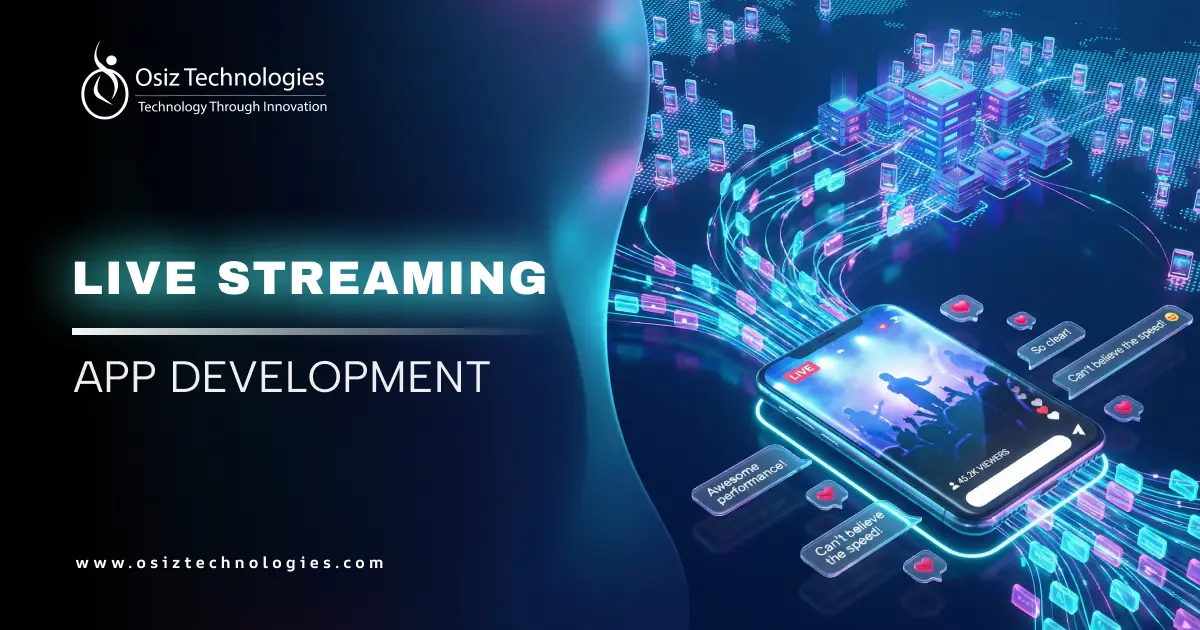What is Artificial Intelligence (AI)?
Artificial Intelligence (AI) is a collection of powerful technologies that allow computers to perform a wide range of advanced tasks. These include recognizing and interpreting spoken and written language, analyzing complex data, providing personalized recommendations, and much more. AI is at the forefront of modern computing innovation, delivering immense value to both individuals and businesses.
For instance, Optical Character Recognition (OCR) utilizes AI to extract text and data from images and documents, transforming unstructured content into structured data that businesses can readily use for valuable insights. AI is a vast and diverse field that brings together numerous disciplines such as computer science, data analytics, statistics, hardware and software engineering, linguistics, neuroscience, philosophy, and psychology. This interdisciplinary approach makes AI an exciting and rapidly evolving area, constantly pushing the boundaries of what technology can achieve.
How Does Artificial Intelligence (AI) Work?
While the specifics differ across various AI techniques, the core principle remains the same: data. AI systems learn and improve by processing vast amounts of data, uncovering patterns and relationships that humans might overlook. This learning process often relies on algorithms, which are sets of rules or instructions guiding the AI's analysis and decision-making. In machine learning, a well-known area of artificial intelligence, algorithms are trained on labeled or unlabeled data to classify or predict data.
Deep learning, a more advanced specialization, uses artificial neural networks with multiple layers to process information, imitating the structure and function of the human brain. Through continuous learning and adaptation, AI systems become increasingly proficient at specific tasks, such as recognizing images, translating languages, and much more.
Types Of Artificial Intelligence
1. Artificial Narrow Intelligence (ANI)
Artificial Narrow Intelligence (ANI), sometimes referred to as weak AI or narrow AI, describes AI technologies intended for particular activities. ANI excels in one particular area and cannot independently learn new skills beyond its original programming. These technologies often use machine learning and neural network algorithms to accomplish their designated tasks.
Examples: AI Virtual Assistants, Self Driving Vehicles, and Image Recognition Software.
2. Artificial General Intelligence (AGI)
Artificial General Intelligence (AGI), also known as general AI or strong AI, is a more advanced concept where AI can learn, think, and perform a wide range of actions similarly to humans. The goal of AGI is to create machines capable of multifunctional tasks, acting as intelligent assistants in everyday life.
Examples: Generative AI, Supercomputers, and Quantum Hardware.
3. Artificial Super Intelligence (ASI)
Artificial Superintelligence (ASI), or super AI, is currently the realm of science fiction. It's theorized that once AI reaches the general intelligence level, it will rapidly surpass human intelligence. ASI would be the foundation of fully self-aware AI and highly advanced robots.
Examples: Robotics
4. Reactive Machine AI
Reactive machines are the simplest form of AI. They can respond to immediate requests and tasks but cannot store memories, learn from past experiences, or improve their functionality over time. They can only react to a limited set of inputs.
Examples: IBM Deep Blue, Netflix Recommendation Engine.
5. Limited Memory AI
Limited Memory AI can store past data and use it to make predictions. This type of AI builds a short-term knowledge base from its experiences, allowing it to perform tasks with increasing accuracy. The core technology behind limited memory AI is deep learning, which mimics the function of neurons in the human brain, enabling the machine to "learn" and improve over time.
Examples: Self-Driving Cars, Virtual Assistants, and Chatbots.
Types Of Artificial Intelligence (AI) Training Models
Supervised Learning
It is a type of machine-learning approach that maps specific inputs to outputs using labeled training data. Simply put, to teach an algorithm to recognize pictures of cats, you feed it images labeled as cats. This is the specialty of supervised learning.
Unsupervised Learning
This type of AI training model deals with unlabeled data. Unlike supervised learning, the outcome isn’t known beforehand. Instead, the algorithm learns to identify patterns and group data based on attributes. Because of this, unsupervised learning is very useful in descriptive modeling and pattern matching.
Reinforcement Learning
It is a machine learning method that can be described as "learning by doing." An "agent" learns to perform a task through trial and error, receiving feedback in the form of rewards or penalties. Positive reinforcement is given for correct actions, while negative reinforcement is given for incorrect ones. This feedback loop continues until the agent's performance reaches a desirable level.
Excellent Benefits Of Artificial Intelligence (AI)
Reduce Human Error
AI systems minimize human errors by executing tasks with high precision and consistency. Unlike humans, they do not suffer from fatigue or oversight, ensuring accuracy in both repetitive and complex operations. This results in more dependable outcomes across various applications.
Fast and Accurate
AI processes large volumes of data swiftly and accurately, far beyond human capabilities. This speed and precision enable real-time analysis and decision-making, boosting productivity and efficiency in multiple industries.
Improved Research and Development
AI enhances research and development by automating data analysis and detecting patterns that humans might overlook. This accelerates innovation and discovery, driving progress in fields like medicine, technology, and environmental science.
Less ManPower
AI can perform tasks that typically require significant human labor, reducing the need for a large workforce. This allows businesses to deploy human resources in more strategic and creative roles, improving overall productivity and job satisfaction.
Infinite Availability
AI systems operate 24/7 without breaks, providing continuous availability and service. This constant operational capability benefits industries requiring round-the-clock functionality, such as customer service, healthcare, and manufacturing.
Features Of Artificial Intelligence
Advanced-Data Analysis
AI can swiftly analyze vast datasets, uncovering hidden patterns and insights that humans might miss. This capability significantly enhances decision-making across various industries.
Natural Language Processing (NLP)
AI’s ability to comprehend and generate human language enables more intuitive interactions with technology. NLP drives applications such as virtual assistants, chatbots, and real-time translation services.
Machine Learning
With machine learning, AI systems learn from data and improve their performance over time without explicit programming. This enables predictive analytics, personalized recommendations, and adaptive user experiences.
Automation
Artificial Intelligence (AI) streamlines menial jobs, freeing up human labor for more intricate and imaginative work. This boosts efficiency and reduces operational costs in sectors like manufacturing and customer service.
Computer Vision
Computer vision technology developed by AI enables machines to interpret and comprehend visual data. It is employed in many different fields, including driverless cars, medical imaging, and facial recognition.
Enhanced Security
AI enhances security by monitoring systems for unusual patterns and potential threats in real time. This proactive approach helps prevent cyber-attacks and protect sensitive information.
Predictive Maintenance
AI predicts equipment failures by analyzing operational data and identifying patterns. This reduces downtime and maintenance costs, ensuring smoother and more reliable operations.
Personalization
AI personalizes user experiences by analyzing behavior and preferences. This leads to more tailored recommendations, improving customer satisfaction and engagement.
Robotic Process Automation (RPA)
AI-driven RPA automates business processes by mimicking human actions, streamlining operations, and boosting productivity. It’s widely used in finance, HR, and customer support.
Smart Assistants
AI-powered smart assistants like Siri, Alexa, and Google Assistant provide helpful information and perform tasks via voice commands. They enhance daily life convenience and efficiency.
Deep Learning
Deep learning, a subset of machine learning, uses multi-layered neural networks to learn from large datasets. This enables AI to achieve remarkable accuracy in tasks like image and speech recognition.
Real-Time Use Cases Of Artificial Intelligence
- Predictive Modeling
- Speech Recognition
- Text Recognition
- Image Recognition
- Translation
- Automate Coding
- Boost Productivity
- Enhanced Cybersecurity
Why Choose Osiz For AI Development?
At Osiz, we offer cutting-edge AI development services designed to meet your business needs. As a leading AI development company with 15+ years of experience, our team of specialists delivers innovative AI solutions that enhance efficiency, automate processes, and drive growth. Computer vision, natural language processing, machine learning, and other areas are among our specialties. We prioritize quality, security, and customer satisfaction, ensuring your AI projects are delivered on time and within budget. Choose Osiz for reliable, top-notch AI development. So, what are you still waiting for? Contact us and get a free demo now!
Other popular services we offer,
Listen To The Article












